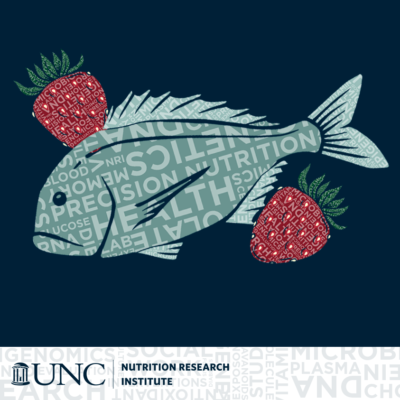Microbiome and Nutrition
The complex community of bacteria, yeasts and viruses living in our intestines, collectively known as the gut microbiome, is shaped, in part, by what we eat. Genetics, environment, and other factors also influence an individual’s microbial community. Research at the NRI investigates these complex relationships and their impact on disease risk. We use animal models and bioinformatics to study the associations between nutritional metabolites, gut microbiome, and health. What happens in the gut doesn’t stay in the gut. Your microbiome can play a role in cardiovascular disease, obesity and diabetes, and even cancer. Our team envisions a future where analysis of your microbiome can determine disease risk, and medical foods can be prescribed to treat and prevent disease by regulating the microbiome.
Publications
Microbiome and Nutrition Publications
2020
Population studies of TMAO and its precursors may help elucidate mechanisms. Meyer K
2019
Association of dietary patterns with the gut microbiota in older, community-dwelling men. Meyer K
2018
Meta-analysis of human genome-microbiome association studies: the MiBioGen consortium initiative. Meyer K
Human microbiota, blood group antigens, and disease. Sumner S
2017
Trimethylamine N-Oxide, the Microbiome, and Heart and Kidney Disease. Zeisel S
2016
Diet and Gut Microbial Function in Metabolic and Cardiovascular Disease Risk. Meyer K
Antibiotic-mediated gut microbiome perturbation accelerates development of type 1 diabetes in mice. Sumner S
Related News
2023/24 Pilot and Feasibility Award Winners at NRI
The UNC Nutrition Obesity Research Center (NORC) offers annual pilot and feasibility awards to support the development of innovative research in nutrition and obesity at UNC-Chapel Hill. P&F awards enable researchers to collect preliminary data that support a...
Appetite for Life: Nutrition Trivia Night
Appetite for Life: Nutrition Trivia Night Thursday, January 26 at 6 PM Gaelic Alley Irish Pub 114 S. Main Street, Kannapolis, NC 28081 What's the difference between a vitamin and a mineral? Grab a pint and get ready to test your nutrition knowledge! The UNC Nutrition...
We’re Hiring
Start the new year fresh, come work for us! We currently have multiple positions open, including: Research Assistant (Tate Lab) Business Officer Accounting Technician Lab Manager (Voruganti Lab) Research Associate (Voruganti Lab) All employees of the Nutrition...
Nutrition Tips for 2023
Many of us in the new year resolve to be healthier. It’s a great goal, but how do we accomplish it? Kendra Nelson, MPH, a registered dietitian and member of the Voruganti lab here at the UNC Nutrition Research Institute, has provided us with some great guidelines to...
Navigating Recovery During the Holidays
This article originally appeared on LivingFreeLab.org. By Katie Olson During the holiday season, more than 85% of Americans are known to overeat (Perrigo, 2018). The emphasis on food and food-centered celebrations can make the holidays even more difficult for people...
Support Our Science
Our science is complex, but the purpose is clear: We do it for you! Your nutritional needs are as unique as you are. They depend on things like your genes, microbes, and environment. We focus on understanding how these individualities affect the way nutrition works to...






